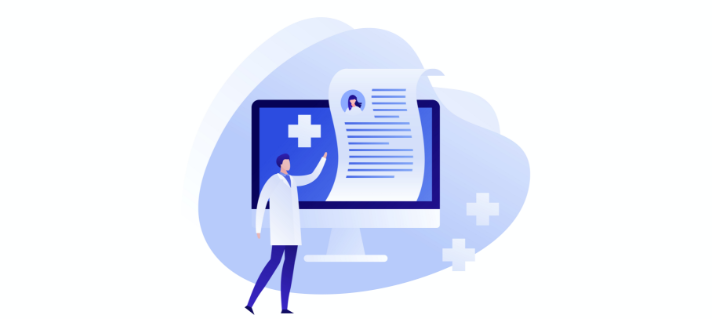Data has often been termed as the oil of the 21st century, but you cannot pump unrefined oil into your car, can you? Processing and gaining insights from the data is as necessary as turning oil into gasoline. Examining your medical coding department closely is essential, given that medical coding directly affects revenue cycle efficiency. Quality medical coding is critical for prompt claim submission and complete, timely reimbursement. Healthcare institutions keeping complicated data organized will also contribute to a good patient experience.
Previously reliant on copious amounts of paper documentation, medical coding has been modernized with the advent of electronic health records. Although electronic health records (EHRs) remain essential, other technologies have evolved to enhance medical coding quality and accuracy further.
Contents
What is Medical Coding?
When it comes to healthcare, medical coding is the process through which unique alphanumeric identifiers are assigned to each diagnosis, treatment, service, and piece of equipment. Documentation in the form of transcriptions of doctors’ notes, laboratory, and imaging findings, etc., is mined for diagnosis and procedure codes. Medical coders must guarantee that the correct codes are used during the medical billing process, extracting data from medical records, assigning those records to the relevant regulations, and submitting those records to insurance companies for reimbursement.
The Why: Why do we even Need Medical Coding?
The provision of consistent financial resources is essential to successfully managing operations in the healthcare sector, just as in every other type of business and industry. The revenue cycle comprises all the clinical and administrative duties carried out and is essential to any hospital or medical practice. It is imperative to have an efficient and effective revenue management system in place to ensure that all healthcare professionals, from physicians to nurses, are paid appropriately and that all expenses like rent and utilities are made on time.
Medical coding services are the two most significant aspects of the revenue cycle that compose a medical claim that assures patients and insurers pay for a medical practice’s services. Patients or insurance companies pay medical claims, which enhance a practice’s finances. Registration of patients initiates the revenue cycle and concludes when the medical practice has received complete payment from patients for the services rendered. The time it takes for payments to get processed depends on factors like the diagnosis, treatment, and code selection.
How Accurate Medical Coding Can Impact Clinical Documentation
Here are some of the benefits that can be attributed to accurate medical coding:
- Improved Patient Care: Coding in the medical industry has become an exact science, and practitioners who code correctly can save expensive rework. When doctors delivering care are also responsible for coding and clinical documentation, they can’t concentrate solely on giving care. They also lack the training necessary to increase the compliance and accuracy of coding. These coders can improve coding quality and free up the clinician’s time to focus on enhancing treatment delivery and the patient experience.
- Better Communication: When patient information is precisely documented and tracked, it makes the healthcare experience more pleasant for the patient and anybody else who needs access to the patient’s medical records, such as billing companies and medical professionals. By implementing clinical documentation improvement (CDI), each healthcare professional and billing business can access the same information regarding a patient’s medical history, improving their ability to offer appropriate care for the patient.
- Optimized Revenue Cycle Efficiency: Reduced reimbursements, rising labor expenses, and a shortage of available certified onshore workers are just a few challenges healthcare firms face today. However, investments are urgently needed in various business functions and technological ecosystems. Business leaders in the healthcare industry are constantly on the lookout for ways to cut expenses and fund new initiatives. Outsourcing and offshoring can unlock savings on labor expenses and access to cutting-edge technology like workflow optimization and robotic process automation (RPA).
- Reduced Claim Denials: A patient’s request for health insurance coverage may be turned down by an insurance company for several reasons. Insurers have the right to refuse to cover the cost of patient healthcare services if the patient’s claim is illegible, does not include sufficient detail, is missing information, or is not submitted on time. Turning to a professional medical billing company will guarantee that claims are filled out, simple to comprehend, and filed on time, decreasing the likelihood of a patient’s claim being rejected.
Conclusion
The impact of increasingly accurate medical coding on improving clinical documentation cannot be understated. Given how the entire process is integral to processing insurance claims and revenue cycle management, it must be of prime importance to medical practice, second only to patient care. It is not uncommon for a CDI expert to have worked in both the clinical and medical coding fields. Clinical documentation improvement (CDI) programs aim to close the gap between clinical documentation and precise coding. If it does not make financial sense for your practice to hire a CDI specialist in-house, you must contract it out to an offshore company.

